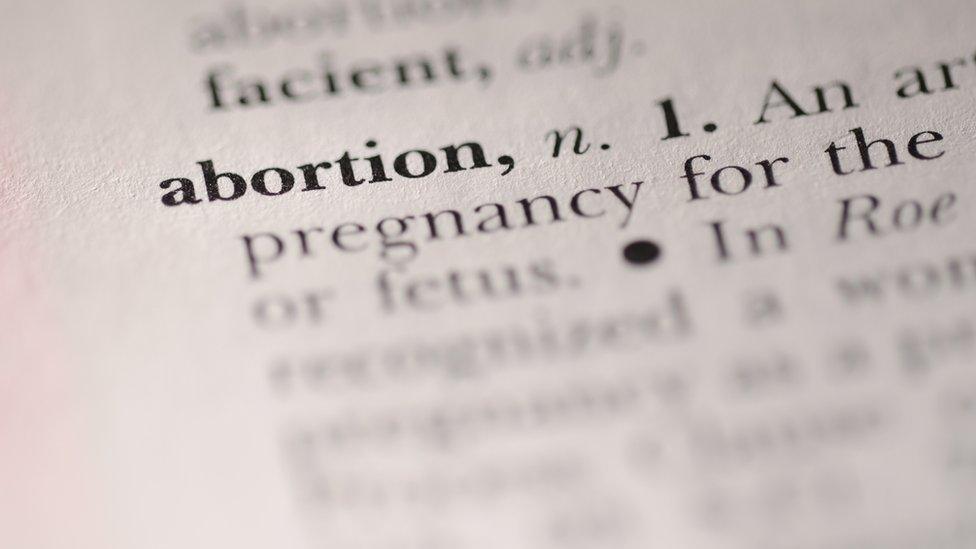Abortion: Health bodies want laws for 'safe and compassionate' care
- Published

The professional health bodies agree there should be no abortion restrictions up to 24 weeks
Health bodies have recommended a legal framework be set up to "prioritise safe and compassionate abortion care" in NI.
They include the Royal College of Obstetricians and Gynaecologists (RCOG), the Royal College of Midwives and the Faculty of Sexual and Reproductive Healthcare.
The groups agree there should be no abortion restrictions up to 24 weeks.
They were responding to plans for a regulatory framework for local abortion services.
Speaking to BBC News NI, Dr Carolyn Bailie, RCOG chair, said restricting access to abortion care before 24 weeks "only creates barriers for women".
"For too long women in desperate circumstances have been unable to access abortion care in Northern Ireland," Dr Bailie said.
"In recent years, women have had to travel to access services where a diagnosis of a life-limiting fetal anomaly has been made and where women have felt unable to continue the pregnancy to term."
The joint recommendation is bound to anger those groups who oppose abortion, including any change being made to abortion law.
Antrim GP, Dr Andrew Cupples, said he was "disappointed" with the report and felt the guidelines were "wrong-headed in many places".
"It's typical of Great Britain-centric bodies wanting to enforce their model in Northern Ireland," he told the BBC's Good Morning Ulster programme.
"We need a Northern Ireland-centric approach. There's no point in enforcing guidelines which have not been agreed locally and which have not taken into account the local scenarios, the local problems, the local issues and, especially, the local feelings," he said.
"That would include the feelings of local NI healthcare professionals. I am very concerned that there is no mention of the significant body of Northern Ireland medical and health care workers who disagree with the proposed abortion legislation."
The professional bodies represent a large proportion of the workforce involved in providing abortion care across the UK.
They have said there is no clinical basis for introducing a restriction at either 12 or 14 weeks and that doing so presents a series of difficulties, including a number of women having to travel to the rest of the UK to complete their abortions.
They also argue that it would represent a failed regulatory framework.
More than 90% of abortions in the UK are carried out before 12 weeks, according to the RCOG.

In November, a public consultation began about a new legal framework on abortion services in Northern Ireland.
It followed the decriminalisation of abortion in Northern Ireland in October after MPs passed a law in Parliament.
The government has to put legislation in place by 31 March regarding the provision of abortion services.
Karen Murray, from the Royal College of Midwives, said: "The RCM joins the RCOG and FRSH in urging the government to introduce a legal framework which is based on the best available evidence and does not intrude clinically unnecessary and administratively burdensome restrictions which create barriers to care.
"This system will not only safeguard women's rights, but will also facilitate our members to provide high quality care to women in NI."
- Published22 October 2019

- Published22 January 2020
